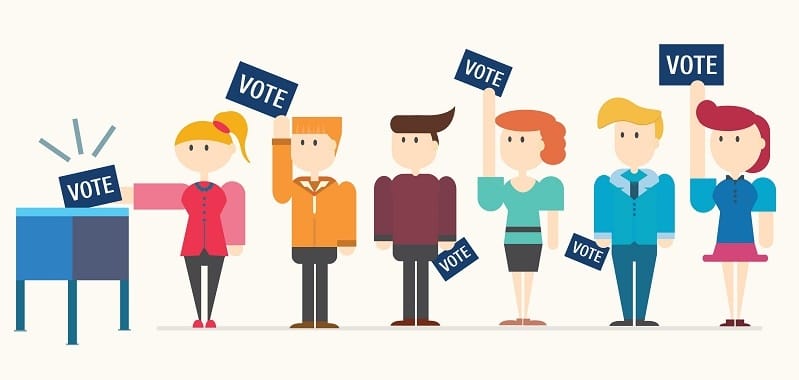Nordis Technologies manages hundreds of homeowner association elections each year, including handling 1.5 million annual meeting and proxy notices and tabulating hundreds of thousands of online, mailed and in-person votes in 2017 alone. So, we have learned a thing or two about what makes HOA elections work—or not.
Every HOA election has to cope with disqualified mailed-in ballots. The reasons vary but include owners who:
- Miss the election deadline.
- Don’t sign the proxy.
- Incorrectly assign a proxy holder to represent owner at annual meeting.
- Assign incorrect number of votes to various director candidates under cumulative voting.
- Vote for too many director candidates.
A single vacation ownership company might be running 20 elections simultaneously, so keeping track of the rules and consequences by resort is complicated.
Each resort has its own voting rules, often quite strict rules, including what disqualifies a ballot. Having no signature universally voids a ballot. Nordis works with each resort to determine how to handle a variety of other scenarios—if the owner votes for too many directors, if the owner allocates points to various directors that add up to more than his/her total points and so on.
To avoid these problems, simplify the process and increase owner participation and satisfaction, vacation ownership companies should take five key steps:
1. Provide clear instructions on ballot
Two areas causing a lot of misunderstanding that lead to voided ballots involve:
- Cumulative voting, which allows owners to assign all of their votes to a single candidate or disperse their votes among the candidates as they choose. In many cases, owners simply check the boxes next to the candidates of their choice instead of allocating a specific number of votes. Without knowing what the owner intended, the correct values cannot be assigned, which invalidates the ballot.
- Proxy holder assignment. Some HOAs allow owners to vote AND assign a proxy holder and some mandate one or the other. The annual ballot is used almost exclusively for HOA board elections, so owners can vote on board appointments without attending the annual meeting. But voting on other matters may occur at the annual meeting, and some owners assign proxies if they can’t attend the meeting. Too often, the rules for assigning proxies and how it impacts their ballots confuse owners, who then fill the proxies out wrong, voiding their decisions and their ballots in some cases.
Providing clearer instructions and/or creating steps that don’t allow owners to make these types of mistakes on proxies and meeting materials would go a long way to eliminating disqualifications. For instance, putting a reminder on the envelope about the need for a signature could help. Also, techniques used in online balloting (see bullet 2) could offer a blueprint for making it easier for owners to correctly fill out paper ballots.
2. Add online voting
With Nordis’ ExpressoVote solution, no online votes get disqualified because the process is essentially foolproof: Owners cannot advance to the next item on the ballot if they don’t fill out the current item properly. Voters can select only the maximum allowable directors and they cannot submit the proxy without including a signature, for example.
While the growing number of millennial owners expect online balloting, the ease of use and convenience of digital options appeal to owners of all ages. Vacation ownership companies that adopt ExpressoVote often see a sharp increase in the number of ballots that move online, saving the HOA considerable money in the process. See an earlier post for more details: Online Voting for Annual HOA Elections Saves Money, Improves Accuracy
3. Make voting omnichannel
Online isn’t a panacea for solving all hiccups, though, because some senior owners find it challenging. They call our customer service team because they can’t figure out how to log on, for example. Instead, the key for improving owner experience and participation is to offer a choice.
Yet omnichannel voting could make handling HOA elections infinitely more convoluted unless vacation ownership companies have the technology to support it. Developing and distributing proxies and other election communications and tabulating of all forms of voting—online, paper and in-person—in real-time can be made fast and easy on a single platform.
4. Offer fast election customer service
Providing easy phone or email access to election customer service for owner login issues or voting questions would also streamline the process for owners, driving higher participation and completed ballots. Quickly responding to owner questions reduces frustration and improves the owner experience, leading to increased owner engagement for future elections, too.
5. Change the voter deadline
We often have a flood of ballots that arrive in the mail a day or two after the election deadline. Every resort handles this situation differently, with some accepting the late ballots and others just counting them towards quorum but not registering the votes.
By setting a deadline for a postmark on a mailed ballot vs. for the election itself, companies could clear up any owner confusion, making results consistent across resorts and minimizing disqualifications due to missed deadlines.
HOA election communications, voting and annual meetings are a prime opportunity for vacation ownership companies to shine and reinforce owners’ good feelings about their investments. We are eager to help you make this the best HOA voting season ever. Please reach out to us at sales@nordistechnologies.com if we can answer questions or help with re-configuring your voting process and rules.
About the Author
Shelley Dolan is the Director of Sales and Marketing Operations for Nordis Technologies. A 15-year employee of Nordis, Shelley has played key roles in implementation and account management for innovative products including ExpressoVote, an application for managing the entire annual election process for homeowner associations, and ExpressoPay, an e-bill presentment and online payment platform. She received her bachelor of science in advertising from the University of Florida.







